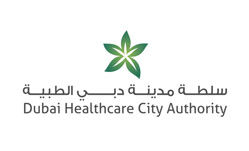News
Experts Call for Oral Health Awareness Programmes for Diabetic and Special Needs Individuals

Wednesday, Apr 04, 2012
Most diabetic patients in the region disregard their oral health although such individuals are most prone to tooth and gum problems due to poorly controlled diabetes which leads to high blood glucose levels, according to members of Middle East Oral Hygiene Advisory Board, the region’s first working group to unite dental experts from across the GCC and Levant countries.
Most diabetic patients in the region disregard their oral health although such individuals are most prone to tooth and gum problems due to poorly controlled diabetes which leads to high blood glucose levels, according to members of Middle East Oral Hygiene Advisory Board, the region’s first working group to unite dental experts from across the GCC and Levant countries.
The experts also highlighted the lack of oral health awareness programmes for special needs patients. According to the group, care givers for persons with developmental disabilities including mental, physical and neurological ones, which require patience and skill. Furthermore, offering dental attention to such individuals requires careful planning, extra time, and the ability to manage their behavioural disorders.
The practitioners reiterated that diligent dental care is a non-negotiable practice that must be adopted by all, regardless of age or medical condition. Highlighting brushing, flossing and rinsing as crucial activities that impact people’s health, the panellists pointed out that a healthy mouth helps people eat well, avoid pain and tooth loss, and improves self-esteem.
All this and more on oral care was discussed at the third Middle East Advisory Board meeting held in Dubai during AEEDC. Hosted by Johnson & Johnson Middle East, the gathering drew the participation of leading regional dental care experts including Mounir Doumit, Professor and Dean of School of Dentistry, Lebanese University; Dr Aisha Sultan, Head of Dubai Dental Society and Emirates Medical Association and the Director of Dental services in Ministry of Health, UAE; Prof Sultan Abdulaziz Al Mubarak, consultant at the King Faisal Specialist Hospital and Research Centre (KFSHRC), and Director, Biotechnology Incubator-BADIR, Saudi Arabia, and Dr Dina Debaybo, Paediatric Dentist at Dr Nicolas and Asp Dubai.
The international specialist, Sebastian Ciancio, Distinguished Service Professor and Chairman in the Department of Periodontics and Endodontics, and Director of the Center for Dental Studies at the State University of New York (SUNY) at Buffalo, New York, also participated in the meeting.
During the meeting, the experts highlighted the challenges they confront in their day-to-day practice. The group also shared initiatives from their local countries, created to raise awareness about oral health.
As part of their deliberations, the experts concurred that profound and distressing oral health issues continue to dominate the Middle East region. Most countries do not even have fluoride included in their water supply, a basic ingredient of maintaining good oral hygiene.
Sharing Lebanon’s oral care awareness campaign, Mounir Doumit said: “Although a number of initiatives were hosted in schools where experts delivered informative sessions for children to understand the use of hygiene rooms and dental schools, gaps still remain. In all, 500 dentists screened 200,000 students across 1,500 public schools. The screenings showed that approximately 25% improvements were registered in oral hygiene among children in Lebanon. Regarding the gaps in oral care, we are looking at ways to address the challenge of low potassium fluoride content in salt and its complete absence in drinking water.”
Speaking for Saudi Arabia, Professor Sultan Abdulaziz Al Mubarak shared details of a study that was conducted to examine oral hygiene challenges and treat decayed teeth, in the country with a specific focus on the concerns of special needs individuals as it is a neglected part of the health system worldwide. The outcomes of this study will be reported by the end of 2012. He also elaborated upon another study that was published last year in one of the diabetic journals. The study underscored the impact of oral health on diabetes; as it showed an improvement of blood glucose level upon improving oral hygiene condition.
Presenting an overview of the public policy for oral healthcare in the UAE, Dr Aisha Sultan said: “Our community based programmes include a programme in collaboration with the Sharjah City for Humanitarian Services and a few governmental dental clinics, where we have focused primarily on children in the Northern Emirates.
“Last year, we also delivered a special awareness programme for pregnant women in collaboration with other government entities. We have additionally prepared a questionnaire and a programme for new couples with support from the UAE Marriage Fund Foundation. We believe that reaching out to young age-groups will help us establish a strong culture of oral hygiene discipline in future generations.”
Speaking for the private sector, Dr Dina said: “We reached out to 45,000 children across the UAE with the support of over 45 dental teams that coordinated dental screenings, instructive talks for parents, counselling by nurses, as well as sessions on techniques of brushing.”
The experts emphasised the need for continued education programmes to help individuals adopt healthy lifestyles. They also highlighted the importance of mandating the appointment of hygienists in hospitals and clinics across the region.